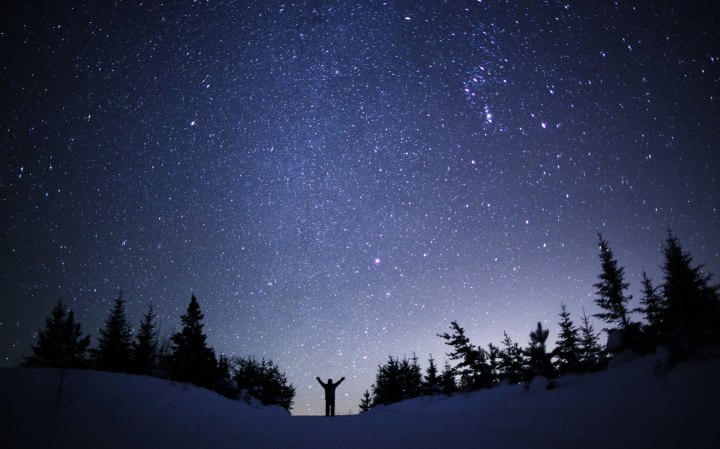I’ve met many mothers on my travels. Quietly, I am learning, pondering their words and their ways in my heart—and I am piecing together the kind of mother I want to be one day. Funny, but the more fragments I gather, I am beginning to realize that the image materializing is my own mother.
Yes, you, Mother-Mine.
I remember your fingers running through my hair, scrubbing shampoo into my scalp or fixing my long, brushed tresses into a ponytail. And while I no longer need those fingers to work through my tangles, your ladylike nails still give darn good back scratches.
Do you remember the garlicky fragrance of kielbasa in the basement? I think the only thing that surmounted our incredulity that you would let us use an electric frying pan in our bedroom was our glowing pride to have such a mother—one who often says yes when others would not. (And because you also said yes to candles, you should know we had a lovely candlelit dinner featuring European sausage, fried puffed rice, and grape-juice wine.)
I remember waking up to discover, laid out in the living room, what treasures you had plumbed from the depths of Value Village for your girls. Treasures like new aprons and peasant-like skirts to wear out into the fields, or a wooden dish to hold whatever food you let us steal from the kitchen.
I can’t remember every silly song you sang us as toddlers, but when I do hear one, I can’t help but grin to remember those three speckled frogs sitting on a log, eating the most delicious bugs.
Do you remember our sandy feet on your white coverlet from Cracker Barrel? An annoyance, I will agree, but those sandy feet were emblems to our days spent at the Gulf of Mexico, collecting shells and sea combs, days you carefully tucked into Dad’s concert tours.
I remember Grandma saying presentation counts, and I finally appreciate that she passed that conviction on to you. Potatoes aren’t served in the big silver pot but in a pottery dish, because it’s not only about getting people fed, it’s about enjoying something beautiful together. And for that, I’ve always loved preparing meals with you, from Sunday supper to sautéed shrimp after Christmas Eve Mass. I think that is why our festivities are a joyful time, not a stressful time—because you’ve taught us how to make food preparation a gift of love wrapped with artistic flair.
Gifts—yes, you’ve never given a gift that didn’t say, “I thought this through for you.” Do you remember Shenanigan, the Beanie Baby Leprechaun? In the store, when she caught my eye and I begged to have her, you wondered aloud why I didn’t want the one with curly golden hair—but no, I insisted upon the one with grass-green hair that stood straight up. And even though you thought she was unappealing, it was Shenanigan that I found folded inside wrapping paper that Christmas.
I cannot count them, but my heart remembers your every kiss—not just because they leave lipstick marks, but because they are not squandered, like your hugs, like your I love you’s. Just enough sunlight to let that flower grow, but never too much to scorch it.
Not that I haven’t felt your dragon’s breath. Do you remember yanking our ears? I can’t say I appreciated it in the moment, but I appreciate it now—because it taught us to sit like angels in Mass, to stay on our chairs at the table, to come when we were called. I still sit like an angel in Mass, stay on my chair at the table, and I am learning to come when God calls.
I remember the sounds you made at your babies. I find myself making them now at other mother’s babies, and I can’t wait make to be making those sounds at my own babies. They may not make much sense to anyone else, but they are a language conceived from love overflowing.
Do you remember my anger, my tears, my occasional foot stomp when I could not figure out my horse and would not listen to your encouragement? But you never gave up on me. I don’t think Islander would be mine if you hadn’t believed I could tame his feral heart. And I did tame him . . . but I don’t think it was so much me who did it as it was you.
I think everyone who has visited the Malletts remembers the home you’ve created, no matter the house we’ve lived in—and we’ve lived in many, haven’t we? (I blame my nomadic heart on you and Abba.) I know it is a home that is warm and inviting and safe, because even strangers will take the tea poured them and sit themselves on the couch and draw their legs up as if it is their home too.
Do you remember telling me not to fly to Madonna House, or walk the Camino, or live on Nahant, or leave for half a year to live far away in the east? Of course you don’t remember. You were never anything but enthusiastic.
I remember your tears as Tianna pulled the curtain back and you saw her standing there on the pedestal in a wedding dress, an elegant bride-to-be. It was beautiful, because it revealed a heart that is as tender today as when Ti-Bird was your little buck-toothed kid. Maybe someday I’ll be in the same place as she: Peester, your little pooky-eared kid in a wedding dress.
Do you remember accepting my every apology? I do.
I remember that most.
Yes, Mother-Mine, I want to be a mother like you—forgiving, spontaneous, generous, laid-back, strong, patient, passionate, thoughtful, unwaveringly supportive—because though no mother is perfect, a rare few are close to it.










